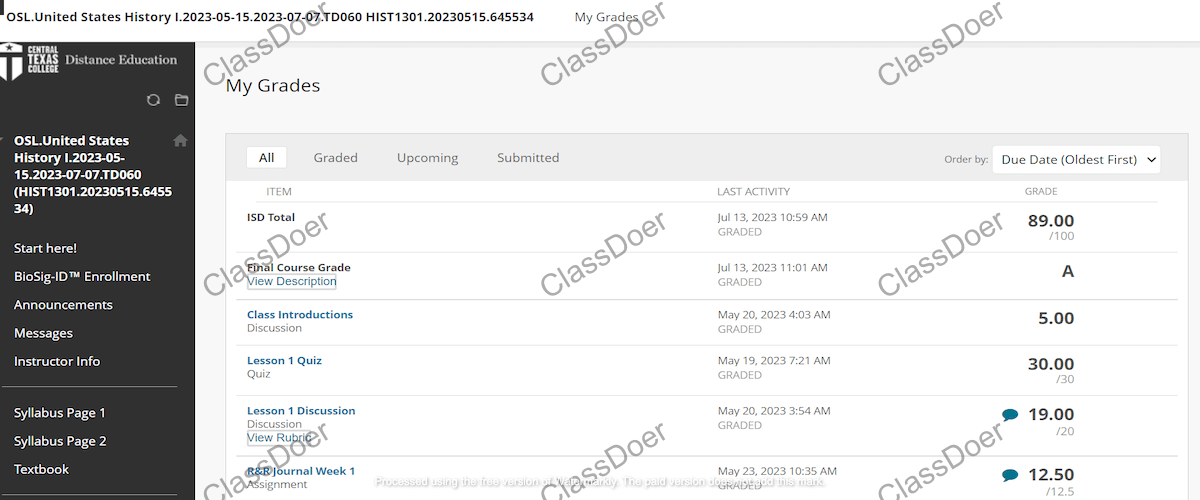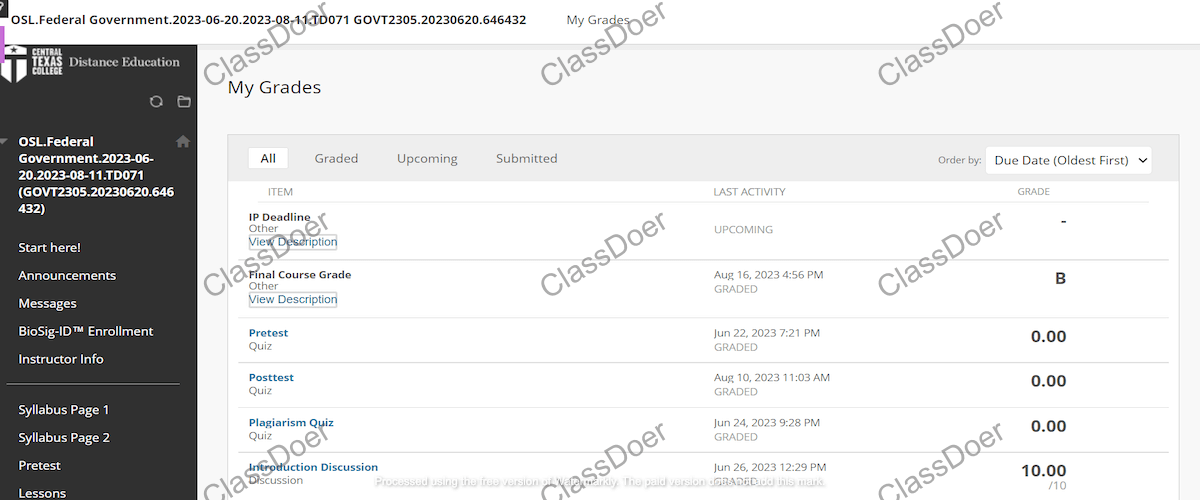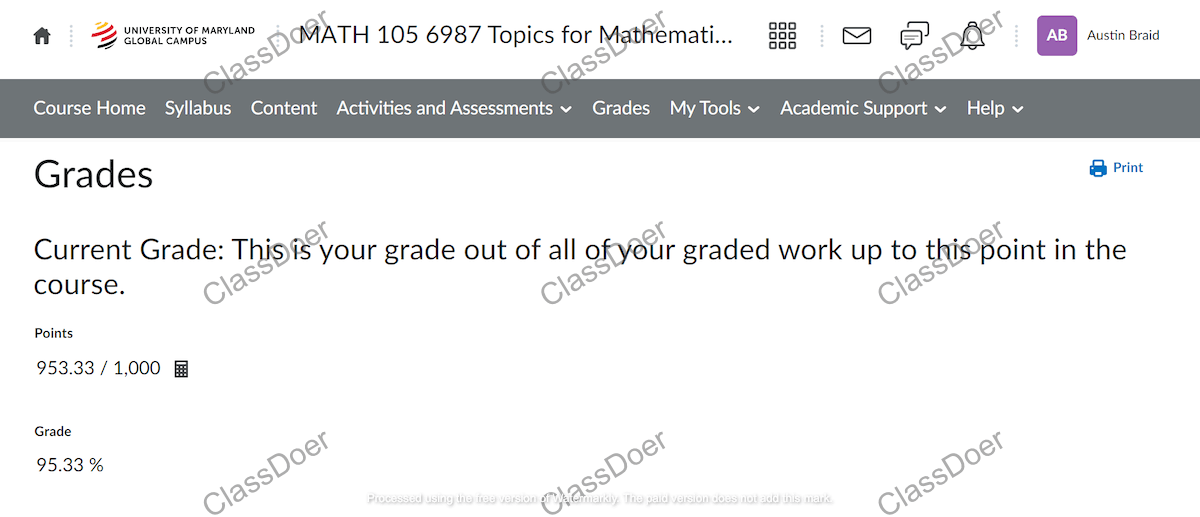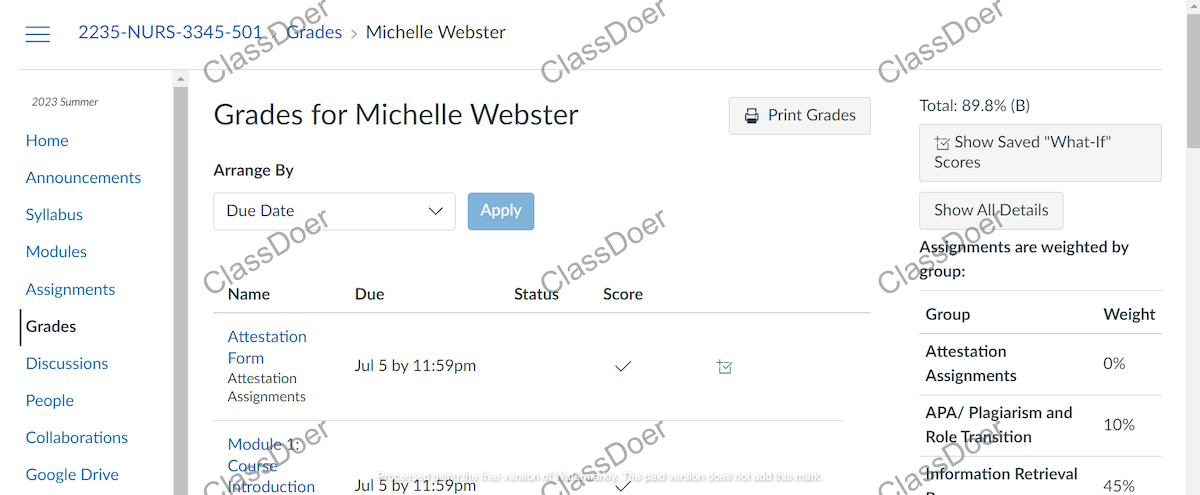A1 AJ 301-O2A Research Methods in Administration of Justice Assistance
Key Topics
- Course Description: AJ 301-O2A Research Methods in Administration of Justice
- Learning Objectives: AJ 301-O2A Research Methods in Administration of Justice
- Grading Scale: AJ 301-O2A Research Methods in Administration of Justice
- Course Outline: AJ 301-O2A Research Methods in Administration of Justice
- Expert Assistance by Take My Online Class for Me
Course Description: AJ 301-O2A Research Methods in Administration of Justice
With the help of AJ 301-02A Research Methods in Administration of Justice students get to know the research methods, that is, a set of techniques or strategies to generate or obtain information in the area of criminology and criminal justice. Crime and delinquency are enormously complex phenomena. Everybody has been affected: the perpetrator, the victim and the society. The best way to alleviate the pains generally associated with criminal activity is to understand why such activity occurs and who the perpetrators are. Such an understanding is possible only if all the facts are carefully and truthfully gathered and presented with a minimum of human errors that can intrude on the process. Therefore, research methods provide the tools necessary to approach issues in the administration of justice from a more rigorous standpoint, which consists of skilful and scientifically sound scrutiny of all aspects of criminal behaviour and those conditions associated with it. Hence, an understanding of research methods helps students make use of the results of a research study, which may be associated with their work duties sooner or later. This, not only gives them command over the most current information but also keeps them from drawing conclusions based solely on non-scientific observations and experiences. In case of any academic issue during the course, you can seek all types of assistance from takemyonlineclassforme.com.
Learning Objectives: AJ 301-O2A Research Methods in Administration of Justice
AJ 301-O2A Research Methods in Administration of Justice can be a subject for you with which you can yield multiple outcomes. Similarly, there are other subjects such as Introduction to Administration of Justice that you can study and yield major outcomes that will be helpful for you in the future for both moral values and your career. Now, once you are done with the course of AJ 301-O2A Research Methods in Administration of Justice, you can easily:
- Understand the proper conduct of the critical inquiry, the research process and the language of research, and recognize the different steps in empirical research pertaining to criminal/administration of justice.
- Understand and make use of the different research designs; gather information from alternative sources (Uniform Crimes Reports, Survey Research, Observation and Case Studies, etc.
- Conduct an actual research project (from data collection to presentation of the findings); employ the appropriate sampling techniques, questionnaire construction and scaling, and establish the reliability and consistency of the measurement instrument; or perform secondary data analysis.
- Understand the importance of ethics in research, the imperative of protecting human subjects, and the process of submitting a research protocol to the Institutional Review Board (IRB).
- Write a scientific report under the strict application of the American Psychological Association (APA) guidelines; and engage in the process of policy analysis and evaluation research.
However, there can be complexities that might come your way during the course. Hence, in that case, you can always seek help with the AJ 301-O2A Research Methods in Administration of Justice course online. There are a number of options available online with which you can put an end to your queries.
Grading Scale: AJ 301-O2A Research Methods in Administration of Justice
Grading is necessary for any course. It helps teachers and peers in the evaluation of your grades and performance. With the help of professional experts, you can always ace all your mock tests, online classes, online exams, etc.
Points Distribution:
Quizzes 7 * 8 points = 56 points
Discussion Board Questions 8 * 4 points = 32 points
Journal Article Summary 1 * 6 points = 6 points
Midterm Examination 1 * 28 points = 28 points
Research Project 1 * 28 points = 28 points
Final Comprehensive exam. 1 * 50 points = 50 points
Total 200 points
Grading Scale:
Letter grades are computed as follows:
|
Percent Points |
93+ |
90+ |
87+ |
83+ |
80+ |
77+ |
73+ |
70+ |
67+ |
63+ |
60+ |
59- |
|
Grade |
A |
A- |
B+ |
B |
B- |
C+ |
C |
C- |
D+ |
D |
D- |
F |
Course Outline: AJ 301-O2A Research Methods in Administration of Justice
Now, let us read about the course outline of the course of AJ 301-O2A Research Methods in Administration of Justice. Furthermore, to ace the course and complete every schedule on time you can ask experts to take my AJ 301-O2A Research Methods in Administration of Justice class online. Moreover, you should always keep yourself updated with the schedule so that you do not miss any deadlines. Also, asking experts to take my online exam is a good way to evaluate your performance yourself. This will help you in keeping track of topics you need to put emphasis on.
|
Week |
Items |
|
One |
Chapter:1 Criminal Justice and Scientific Inquiry
|
|
Two |
Chapter one continued. |
|
Three |
Chapter:2 Ethics and Criminal Justice Research
|
|
Four |
Chapter:3 General Issues in Research Design
|
|
Five |
Chapter:4 Concepts, Operationalisation and Measurements
|
|
Six |
Chapter 4 Continued |
|
Seven |
Chapter:5 Experiments and Quasi-Experimental Designs
|
|
Eight |
Chapter Five Continued |
|
Nine |
Spring Break No Classes |
|
Ten |
Chapter:6 Sampling
|
|
Eleven |
Chapter:7 Survey Research
|
|
Twelve |
Chapter:9 Field Observation
|
|
Thirteen |
Chapter:10 Agency Records, Content Analysis and Secondary Data
|













 98% of our client Scored A/B
98% of our client Scored A/B No Guaranteed Grade
No Guaranteed Grade